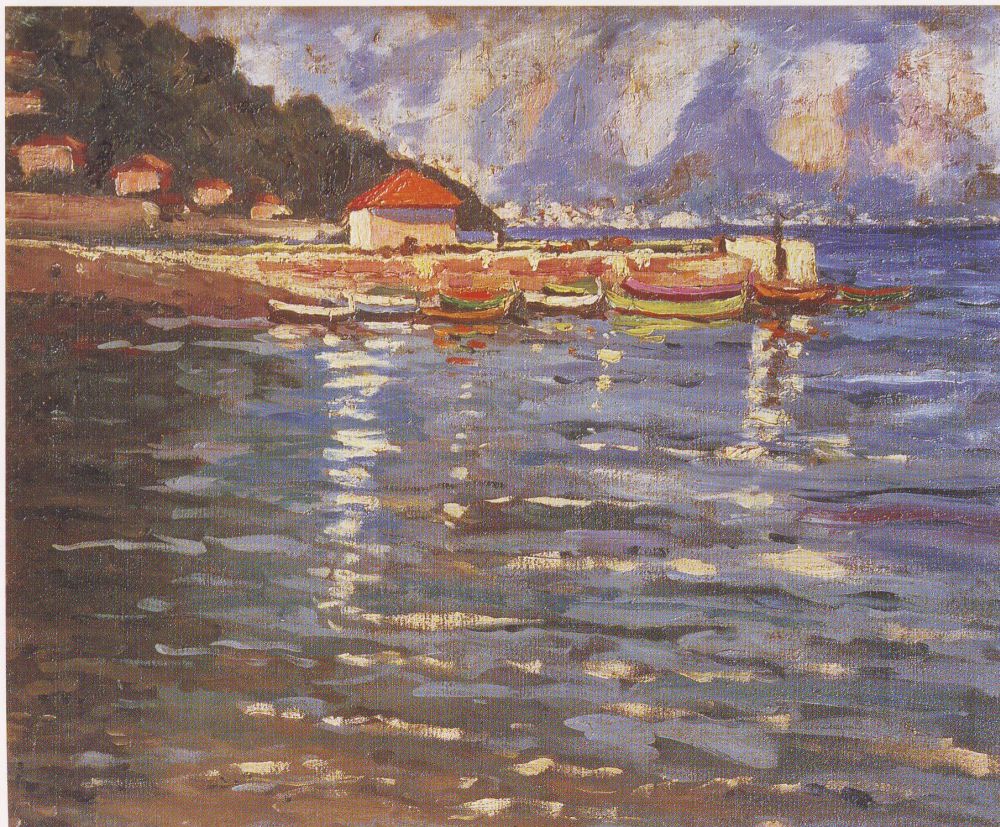Rarely have two men been so savagely opposed, and so different in their formative experiences, though each had war experiences . Hitler (1889-1945) rose from nothing to absolute dominion over Europe, and fell like a stick; Churchill (1874-1965) started high, aimed higher, and after years in the wilderness achieved greatness…
So, the battle of wits between an ascendant 51-year-old Hitler and a last-choice, embattled 66-year-old Churchill is a story always worth telling, perhaps worth telling for ever. Churchill turned the course of history. The very first German biography of Hitler, by Joachim Fest, made the telling point that, for all his oratory, Hitler left little of note in the German language. Art Historian Burckhardt again: “The essence of tyranny is the denial of complexity”. Churchill, on the other hand, lifted English to the sunlit uplands. He was a most quotable man. Does any of this matter, in the cold calculation of war? Yes. Rhetoric is worth many battalions. Language can move hearts because it is the supreme tool of thinking…
Joachim Fest again: although Marxist historians have sometimes argued that historical events are inevitable because of major economic forces, and that historical biography is no more than courtly flattery, Hitler proves them wrong. His capture of the German soul and his face-saving explanation for their lost first world war proved all too powerful, with dreadful results. He was the spark in the methane swamp…
And on that point, historian Robert Tombs has put forward a good argument that Britain should have ducked out of the war, kept the Empire, and let the Nazi regime fail under its own dreadful contradictions. Conquering with lightening war is one thing, governing for the long term another. Empires are costly. Even subjugated peoples rebel from time to time. Policing them takes time, and saps profits. Ask the English. The audience was not convinced by this championing of prudent self-interest in the face of a barbaric regime, but it was a reasonable position in 1940, as the film, perhaps too vividly, depicts…
Perhaps Churchill versus Hitler is the best story ever told, and will be told again and again, long after Alexander, Hercules, Hector and Lysander are all forgotten. It will enter world history as the greatest confrontation ever: two men fighting for Europe in a battle that spread across the whole world, dragging in others till the death toll reached 50 million.
Comments:
* After seeing a 2050 showing of this film, the following comment was heard. “We had to fight the Nazis or we’d be speaking German today,” said the British man in Arabic.
* Hitler was a product of his times. Even if he had been throttled in his crib, someone else would have arisen to take his place.
If you want to see the roots of WWII, you need only study the politics of WWI. (And, no, I don’t mean just the Versailles Treaty.) All the things you see in the history of WWII – deportations, ethnic cleansing, massacres of civilians, annexations, political arrests, expansionist politics, race theory and so on – one can discover easily in the actions of *all* the participants in WWI, and on a large scale. Indeed, it can be argued that all Hitler and the Third Reich were following the plans laid out before and during WWI by, variously, the Second Reich, Austro-Hungarian Empire, France, Russia and, to a lesser degree, Britain. It’s fair to assert that all Hitler was doing was following somebody else’s blueprint, and with the full support of German Speakers everywhere who didn’t want to repeat the privations, deaths, rapes and destruction of recent memory.
As has been pointed out elsewhere and above, Churchill was to a large degree an indebted fraud with a good PR machine. One very much doubts if all that “Stirring Oratory” was actually written by him at all. (Ditto the books. And that “We Will Fight Them…” speech was made by an actor on the radio.) Pretty much drunk most of the time – a high functioning alcoholic – a deep analysis of Churchill reveals a manipulative and superficially charming Psychopath who managed to drag both his country (and the United States) into a bankrupting war that pretty much destroyed the Empire he purported to be saving. It’s worth noting that in a different time and place he would be considered a War Criminal.
In contrast, Hitler’s writings – pretty much dictated – are pedantic and plodding to be sure. Where he shined brightly was in oratory. Working only with basic notes – bullet points – He would begin a speech, stop and pause, begin again, stumble then start, all the while reading the audience. Moving ahead extemporaneously, he soon had them mesmerized. If you ever watch one of his speeches from beginning to end – and not the Allied Propaganda middle excerpts where too often in he’s shown screaming and gesticulating wildly – you quickly realize that this guy made one hell of a speech. And that, along with making concrete the fears (born of experience) and desires of his audiences, was what made him so successful.
(It’s also worth noting that rarely do they tell you what he’s saying. Instead, you usually get a solemn announcer talking about “These Words of Hate.”)
This is all revisionist of course. And the takeaway is that in history the more a personage is presented as a cardboard cutout – saintly or demonic as (((circumstances and pressures))) dictate – the further you are from the truth of that person (and the forces and politics around him) you actually are. That’s where reading deeply into history becomes important.
* Hitler vs. Stalin was the real cage match, with all talons out, sharpened.
Looking abroad, Chiang Kai-Check vs. the Tojo vs. Mao was an even bigger deal.
* Who was the better painter?
Churchill?
Or Hitler?
* The least discussed of the famous Churchill stories is his one embarrassingly public failure of morale in the 24-hours before D-day. D-Day invasion was heavily planned around correcting Churchill’s mistakes and Gallipoli – especially his failure to realise the importance of contemporaneous Intel, and the consequent ability of the defending Turks to prevent or delay critical pushes by bluffing with only a handful of men until reinforcements arrived with which to pin the invaders on the beaches (hence D-day’s emphasis on high casualty paratrooper and air reconnaissance tactics – to avoid Churchill’s error, they needed to know what was happening beyond the beachfront).
After several years of everything a public image of unflappable confidence, Churchill spent the day slowly disintegrating , emotionally and intellectually, until in the last few hours he began insisting that the invasion had to be delayed, with increasingly spurious excuses. He even to get on the phone to FDR and any American general in his Rolodex, until his minders and American liaisons essentially blocked him for fear that in his hysterical state, Churchill would completely violate communications secrecy and give away the invasion date.
In retrospect, we now know that Churchill was subject to mood swings throughout his life. But it certainly looks a lot like the old man was human enough, and suffered enough guilt for his role in the First World War, that he had a near breakdown over the thought of being responsible for a 2nd Gallipoli.
* Churchill was very good with words but an abject failure in military strategy. He failed at Gallipoli, he failed in Norway, he failed at Anzio, he was wrong about the Normandy Invasion (an American plan) etc…
The Brits performed poorly in WWII, they rode the coattails of America and Russia to victory. It is ridiculous to see them thumping their chests and pretending as if Churchill was the hero of WWII.
* He was probably more worried that his reputation would suffer than about sending thousands of men to die climbing up the cliffs under the pounding of the German guns.



